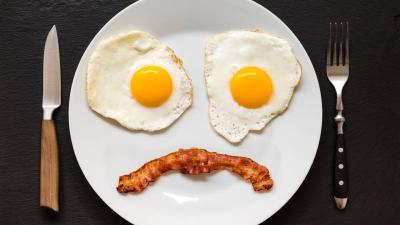The Incredibly Inedible Egg

A recent question in The New York Times Well blog created some confusion by asking how many eggs you can (or should) eat. The answer was not eggs-actly correct.
Since one egg has the same amount of cholesterol as a Big Mac, it is unnecessary—even detrimental to your health—to consume eggs or egg products. One egg has more cholesterol than your body needs. In fact, any added dietary cholesterol is unnecessary because our bodies already produce more than the amount we require. An excess of cholesterol leads to heart disease, so it’s no surprise that a 2010 study in the Canadian Journal of Cardiology found that those who consume the most eggs have a 19 percent increased risk for cardiovascular problems.
What The New York Times blog fails to explain is that eating an occasional egg might not increase health risks for people already eating a high-fat, high-cholesterol diet—just as smoking an occasional cigar might not increase health risks for people already smoking cigarettes. But if people are already eating a healthful diet without any added dietary cholesterol, eggs can contribute to many problems in addition to heart disease. Recent studies in Atherosclerosis and the International Journal of Cancer show that egg consumption can also cause diabetes and even cancer.
The misperception surrounding the necessity of eggs has even spread to the courtroom. Unilever is suing Hampton Creek Foods for using the term “mayo” in relation to its egg-free Just Mayo condiment. The argument is that “mayonnaise” is defined as an egg-based product. However, removing the egg from mayonnaise also removes the cholesterol, a win-win. The lawsuit seems to be backfiring for Unilever by helping people realize that there are more healthful alternatives to Hellmann’s mayonnaise.
No matter what you call it, egg-free is the better option.








